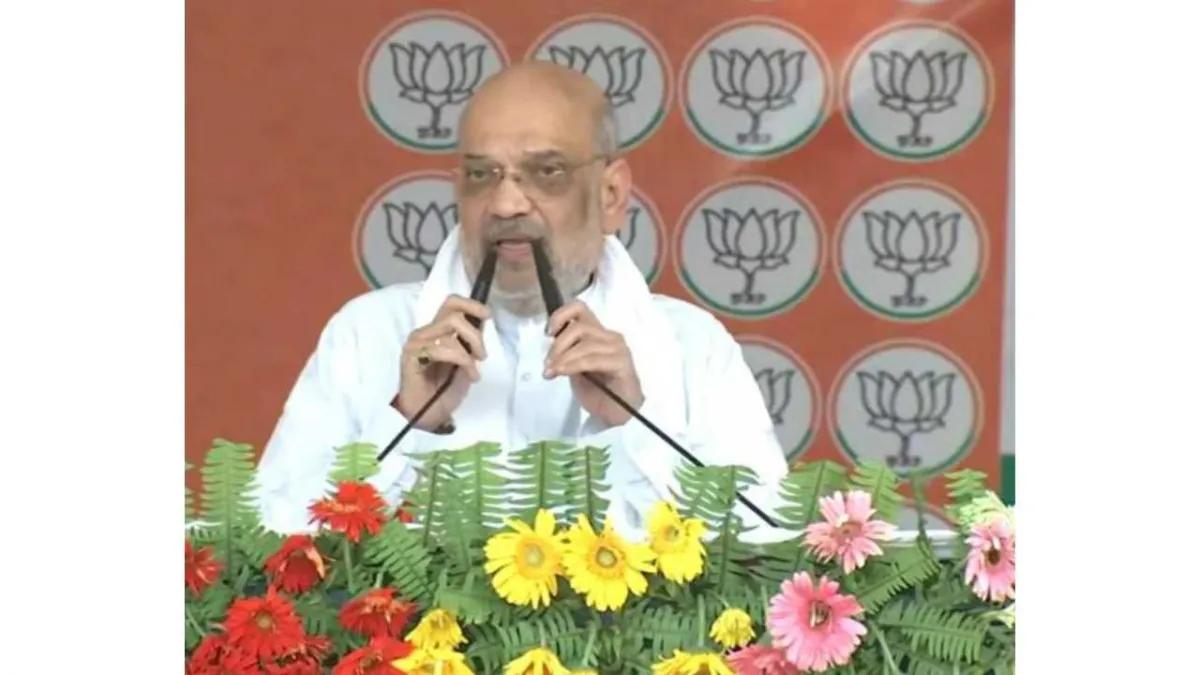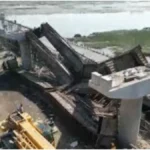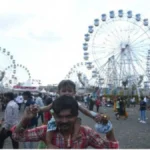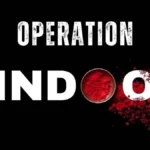Khagaria (Bihar), October 25: Union Home Minister Amit Shah said on Saturday that the Bihar Assembly elections will decide whether ‘jungle raj’ returns to the state or it continues on the path of development.
Addressing an election rally in Khagaria district, Shah targeted the ‘INDIA’ alliance for opposing the special intensive revision (SIR) of voter lists and said, “Every single infiltrator will be identified, their names will be removed from voter lists, and they will be sent back to their countries.”
Attacking the Leader of Opposition in Lok Sabha, Shah said, “Rahul Baba says infiltrators should be allowed to stay in Bihar. You tell me, should we allow infiltrators to stay? No matter how many rallies they hold… even if they take out ‘save infiltrators marches’, they cannot save the infiltrators.”
The Home Minister claimed that the National Democratic Alliance (NDA) government will be formed again in Bihar and said, “Our government will identify and remove every single infiltrator from the country… they will be traced and sent back.”
He said, “This election is not about making someone an MLA, minister or chief minister. This election will decide whether Lalu-Rabri’s ‘jungle raj’ returns to Bihar or whether a developed Bihar under NDA will establish its identity across the country.”
Shah alleged that the opposition grand alliance’s identity is “corruption and dynastic politics.”
He said that RJD chief Lalu Prasad focused only on the prosperity of his family.
Shah claimed, “Nitish Babu wants comprehensive development of the state, while Lalu ji wants to make his son the chief minister and Sonia Gandhi wants to make her son the prime minister. Therefore, only Narendra Modi ji and Nitish Kumar ji can care for the sons and daughters of Bihar. There is not a single corruption charge against them, while Lalu ji has been involved in countless scams from the fodder scam to the BPSC scam.”
He alleged that “During Lalu’s rule, incidents like murder, robbery, extortion and kidnapping were common. Industries left the state and Bihar was made backward.”
Shah claimed that “Under Nitish Babu’s leadership, NDA freed Bihar from ‘jungle raj’, eliminated dynastic politics, and most importantly, worked to eliminate Naxalism too.”
Extending greetings to the people of Bihar on the occasion of Chhath Mahaparva, Shah said, “I pray that Bihar always remains free from ‘jungle raj’, law and order remains strong, sisters and daughters remain safe, and the state continues to progress on the path of development.”
Shah said that NDA’s policy is clear – better facilities in schools and colleges, irrigation for farmers, timely medicine and water supply to every household.
He said that recently the NDA government has deposited ₹10,000 into the accounts of one crore sisters associated with ‘Jeevika’.
Shah said, “Widow and old age pension has been increased from ₹400 to ₹1,100. ASHA sisters’ honorarium has been fixed at ₹3,000 per month. The dream of Metro in Patna is now becoming a reality.”
The Home Minister claimed that “The Prime Minister has taken the country’s economy from 11th position to 4th position and by 2027, India will become the world’s third largest economy.”
He said that the Modi government strengthened the country’s security and entered terrorist hideouts to eliminate them.






